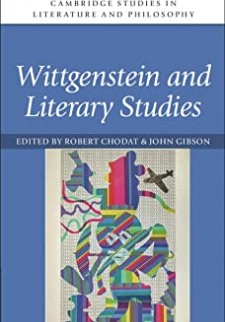Wittgenstein and Literary Studies
Sarah Beckwith, Toril Moi and Henry Pickford (chapter authors)
2023
Cambridge University Press

Wittgenstein is often regarded as the most important philosopher of the twentieth century, and in recent decades, his work has begun to play a prominent role in literary studies, particularly in debates over language, interpretation, and critical judgment. Wittgenstein and Literary Studies solidifies this critical movement, assembling recent critics and philosophers who understand Wittgenstein as a counterweight to longstanding tendencies in both literary studies and philosophical aesthetics. The essays here cover a wide range of topics. Why have contemporary writers been so drawn to Wittgenstein? What is a Wittgensteinian response to New Historicism, Post-Critique, and other major critical movements? How does Wittgenstein help us understand the nature of style, fiction, poetry, and the link between ethics and aesthetics? As the volume makes clear, Wittgenstein's work provides a rare bridge between professional philosophy and literary studies, offering us a way out of entrenched positions and their denials-what Wittgenstein himself called 'pictures' 'that held us captive.'
